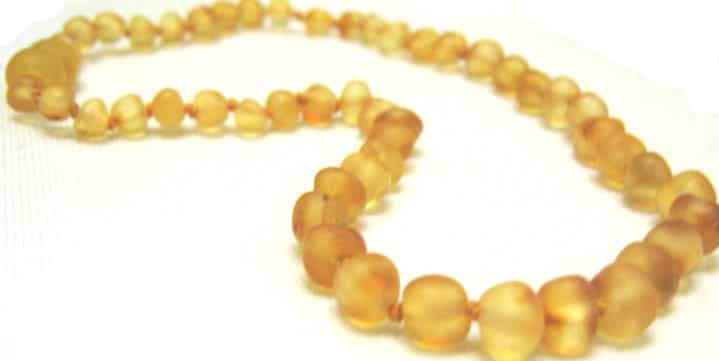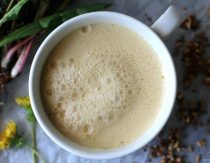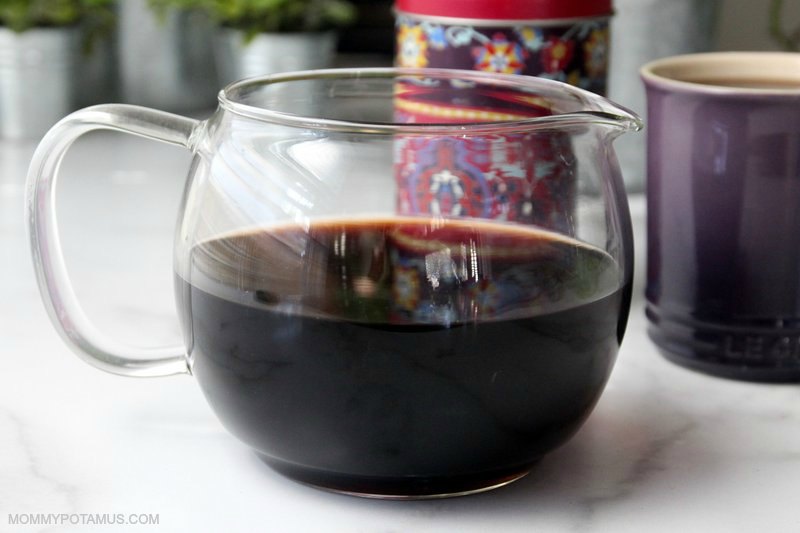
“For more than 1,000 years, herbalists have revered elder’s abilities, and mentions of the shrub are included in many important historical texts,” writes herbalist Rosalee De La Foret, adding that although it’s primarily used to support the body during cold and flu season there are other benefits, too. (1)
What benefits, you ask? Elderberries are rich in anthocyanins – which are responsible for giving the berries their dark purple color – along with other highly bioactive antioxidants that:
- Help the body absorb vitamin C – This is important because Vitamin C is essential for immune function and other processes like collagen synthesis (2)
- Have immunomodulatory and immune supportive effects – Helps balance and support the immune system so that it can function as optimally as possible.
- Support a healthy inflammatory response – According to tradition, in 1899 an American sailor accidentally discovered that port wine colored with polyphenol-rich elderberries eased his aches. (3)
- Support cardiovascular health – Elderberries are rich in a flavonoid called quercetin that supports the strength and integrity of capillaries. For people already within normal range, quercetin can support optimal blood pressure levels. (4) The antioxidants in elderberry also support cardiovascular health by protecting lipids from oxidation. (5)
Although not technically a benefit, it also happens to be delicious when simmered with a cinnamon stick or a few slices of fresh ginger. You can also brew it with other immune supportive herbs such as echinacea. However, the process of making elderberry tea is a little different than most herbal teas, and you’ll want to use a two-step process if you incorporate echinacea.
Here’s why: As I cover in this post on different types of herbal preparations, roots, bark, dried berries and woody plant parts need a little coaxing to release their therapeutic compounds. They need to simmer in water for 20-60 minutes (depending on the herb and what you’re trying to achieve), but that’s way too long for delicate flowers like echinacea.
For that reason, I suggest simmering the elderberry tea first and then adding the echinacea near the end.
How To Use Elderberry Tea
Elderberry is often taken daily (or nearly so) during cold and flu season to support healthy immune function.
I often make a big batch at breakfast for my family to sip on throughout the day. I keep it in a pitcher on the counter and they pour themselves a glass whenever they’re thirsty.
Elderberry Tea Recipe
Equipment
Ingredients
- 1¼ cups water
- 2-3 tsp dried elderberries
- 1 cinnamon stick (or a few slices of fresh ginger)
- 1 tsp dried echinacea (optional)
Instructions
- Place elderberries, water and cinnamon/ginger (if using) in a pot.
- Bring the water to a boil, then reduce to a simmer and cover the pot.
- Simmer the tea on low for 20 minutes.
- If you're not incorporating echinacea, remove the pot from heat and strain out the berries and cinnamon/ginger if using. If you're incorporating echinacea, remove the pot from heat and add it in. Put the lid back on and let it steep for five minutes before straining.
- Sweeten with raw honey or your preferred sweetener if desired before serving.
Notes
Nutrition
Frequently Asked Questions
Below are answers to the most common questions I’ve received over the years. If you don’t see your question mentioned, please leave it in the comments below!
According to the Botanical Safety Handbook: 2nd Edition, elderberries are a Safety Class 1A herb, which is the safest rating possible. Herbs in this category are described as: “Herbs that can be safely consumed when used appropriately.”
* History of safe traditional use
* No case reports of significant adverse events with high probability of causality
* No significant adverse events in clinical trials
* No identified concerns for use during pregnancy or lactation
* No innately toxic constituents
* Toxicity associated with excessive use is not a basis for exclusion from this class
* Minor or self-limiting side effects are not bases for exclusion from this class”
However, according to Herbal Medicine for Beginners, which was co-authored CommonWealth Center for Holistic Herbalism founders Katja Swift and Ryn Midura, “Large amounts of fresh elderberries have a laxative effect. Cook elderberries for food use.”
As always, check with your doctor before adding herbs to your diet, and listen to your intuition to help you make the best choice for yourself.
The elder plant “has a stimulating effect on immune function. These actions are strongest in the berries but are also present in the flowers. Elderberries can even help preserve immune function as we age, due to their high antioxidant content.
Elderflowers are a relaxing diaphoretic, meaning they assist in ‘sweating out’ a fever. Elder is especially helpful when fever and chills alternate. A hot cup of tea is the best preparation for this result. This diaphoretic action can also work emotionally, helping release intense emotions or worry and allowing the mind to relax.” (Herbal Medicine for Beginners)
Over the past few days I’ve received some questions about whether elderberry can cause an immune system overreaction called a cytokine storm.
Safety is my top priority when using herbs, so this is definitely a topic that I felt I needed to become informed about. In this article I explain what a cytokine storm is, what clinicians and herbalists say, and what I’m doing personally.
Most people describe it as sweet and tart with earthy tones. It’s lower in sugar content than most other berries, so the sweetness is subtle.
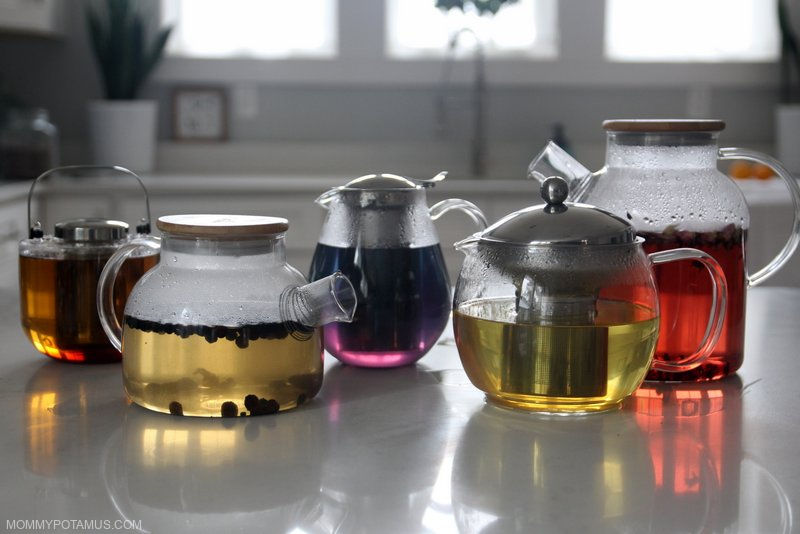
Recommended Teapots
Whenever I post about the benefits of a particular herbal tea I’m sipping on, I usually get a ton of comments like “Love that herb so much but seriously TELL ME ABOUT THAT TEAPOT.”
Here’s a list of my top five favorites, including a few that are stovetop safe.
More Therapeutic Tea Recipes
Dandelion Root Tea – This rich, creamy tea is so delicious that I always make a double batch – one cup for me, and one to replace that cup when my littles steal away its deliciousness. It’s helpful for, balancing hormones, detox, and digestion, plus it has anti-inflammatory properties and minerals, too.
Lemon Ginger Tea – This immune support tea is made with three essential ingredients, plus 1-5 optional additions based on what you have on hand.
Moon Milk – There’s something that just feels so beautiful and therapeutic – even enchanting – about whipping up a nighttime cup of moon milk with sleep supporting herbs.
In the article above I dive into its Ayurvedic origins and benefits, plus how to make it in four flavors:
- Golden Milk With Turmeric
- Goodnight Moon
- Blue Moon
- Chai
Want more research-backed natural remedies?
No problem, I’ve created a free ebook for you – Kitchen Apothecary: 25+ Natural Remedies Using Ingredients From Your Pantry – as a gift for signing up for my newsletter. You’ll also get updates when I post about safe essential oils for pregnant/breastfeeding mamas, exclusive gifts and coupons (I was able to give away a jar of free coconut oil to anyone who wanted it recently!), plus other goodies.
Sign up using the form below.
This article was medically reviewed by Dr. Scott Soerries, MD, Family Physician and Medical Director of SteadyMD. As always, this is not personal medical advice and we recommend that you talk with your doctor.
Sources
1. de la Foret, Rosalee (2017) Alchemy of Herbs
2. Jones, E and Hughes, R.E. (1984) The influence of bioflavonoids on the absorption of vitamin C
3. The East London Garden Society. Elderberries
4. Serban, Maria‐Corina et. al. (2016) Effects of Quercetin on Blood Pressure: A Systematic Review and Meta‐Analysis of Randomized Controlled Trials
5. Sahebkar, Amirhossein (2017) Effects of quercetin supplementation on lipid profile: A systematic review and meta-analysis of randomized controlled trials
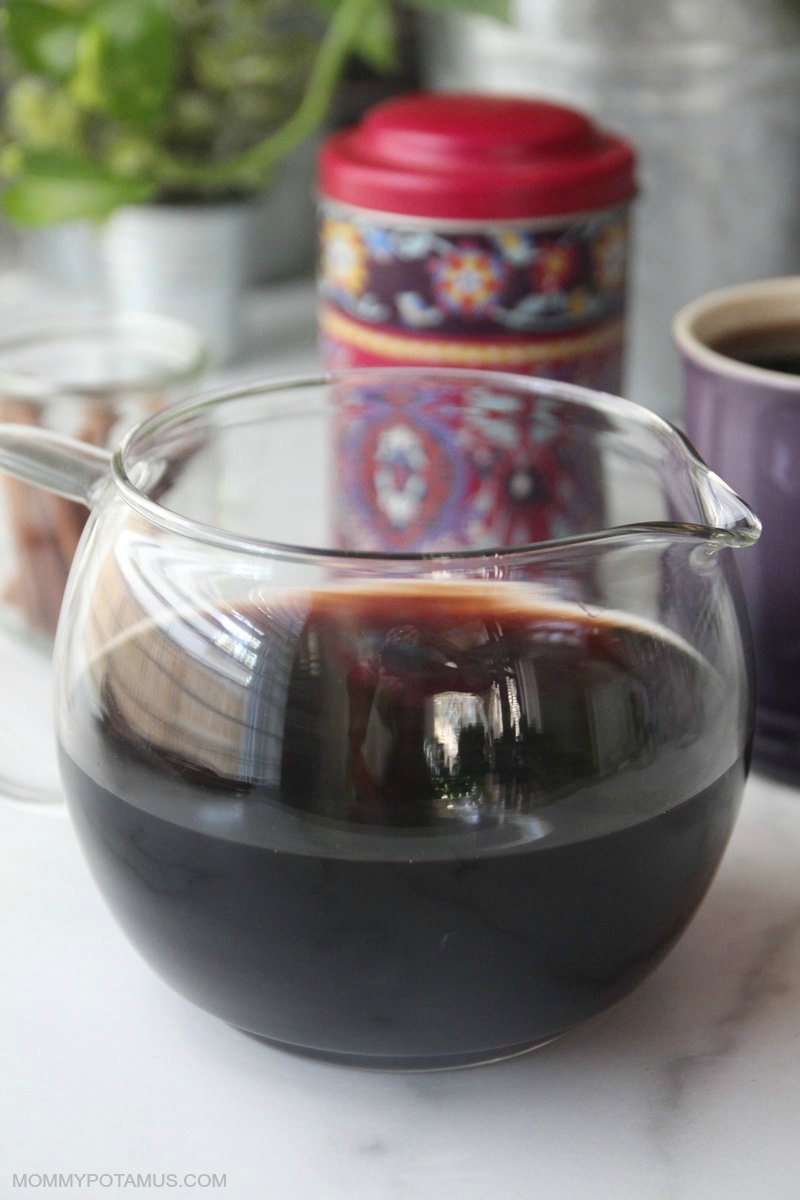

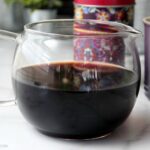
 Tried this recipe?
Tried this recipe? 